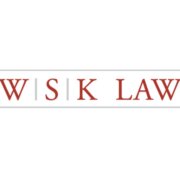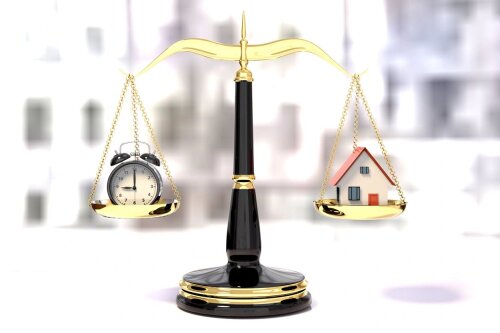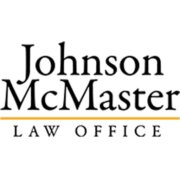Best Landlord & Tenant Lawyers in Cambridge
Share your needs with us, get contacted by law firms.
Free. Takes 2 min.
Free Guide to Hiring a Real Estate Lawyer
List of the best lawyers in Cambridge, Canada
About Landlord & Tenant Law in Cambridge, Canada
Landlord and tenant law in Cambridge, Ontario, is designed to govern the relationship between landlords and tenants, providing rights and responsibilities for both parties. The law sets the framework for leasing residential properties, covering issues such as lease agreements, rent payments, eviction procedures, maintenance responsibilities, and dispute resolution. Most residential tenancies in Cambridge are governed by the Residential Tenancies Act, 2006 (RTA). The RTA is a provincial law that outlines the standards and protections for landlords and tenants throughout Ontario, including Cambridge.
Why You May Need a Lawyer
While many landlord and tenant matters can be resolved between the parties, there are several situations where legal help may be necessary. Common reasons to consult a lawyer include:
- Disputes over unpaid rent or rent increases
- Eviction notices and challenges to eviction
- Concerns about illegal entry or privacy violations by landlords
- Damage to the rental unit and responsibility for repairs
- Issues with lease agreements or renewal terms
- Discrimination or harassment claims
- Complicated issues involving subletting or assignment of lease
- Claims about maintenance or habitability of the property
- Disputes about deposit refunds at the end of the tenancy
Legal professionals can help both landlords and tenants navigate the law, prepare required documents, represent them at hearings, and work toward fair solutions.
Local Laws Overview
In Cambridge, landlord and tenant matters are primarily regulated by the Residential Tenancies Act, 2006. The Act applies to nearly all rental properties, with some exceptions such as co-operative housing and certain institutional accommodations. The key aspects include:
- Tenancy Agreements: Written or verbal leases are permitted, but written agreements offer clearer terms and protections.
- Rent Rules: The Act governs how much and how often rent can be increased, usually requiring 90 days' written notice and adherence to prescribed guidelines set each year by the Ontario government.
- Eviction Procedures: Landlords must have legal grounds and follow formal steps to end a tenancy, such as for non-payment of rent or for landlord’s own use. Evictions must be ordered by the Landlord and Tenant Board (LTB).
- Maintenance and Repairs: Landlords are responsible for keeping properties in good repair and meeting health and safety standards, regardless of whether the lease says otherwise.
- Deposits: Only a rent deposit equivalent to one month's rent may be collected in advance, and it must be used for the last month’s rent.
- Entry: Landlords must provide at least 24 hours written notice to enter, except in emergencies.
Cambridge also requires landlords to comply with municipal property standards, which cover safety, cleanliness, and maintenance of rental units.
Frequently Asked Questions
What are my rights as a tenant if my landlord wants to evict me?
As a tenant, you cannot be evicted without a valid reason and a formal process. The landlord must apply to the Landlord and Tenant Board and receive an order before you are required to leave. You have the right to attend the hearing and present your case.
How much notice does a landlord have to give to increase the rent?
Landlords must provide at least 90 days’ written notice before increasing rent. Rent increases must comply with the annual guideline set by the Ontario government unless an exemption applies.
Can my landlord enter my rental unit at any time?
No. Except in emergencies, landlords must provide at least 24 hours written notice, stating the reason and time for entry, which must be between 8 a.m. and 8 p.m.
What can I do if my landlord is not making necessary repairs?
You should first notify your landlord in writing. If the issue is not resolved, you can file a complaint with the Landlord and Tenant Board or your local municipal property standards department.
Can I be asked to pay a security deposit?
Landlords in Ontario may only collect a rent deposit, equal to one month’s rent, which can only be used for the last month's rent. Security or damage deposits are not permitted.
What happens to my rent deposit if my rent is increased?
If the monthly rent increases, the landlord can request the additional amount required to bring the last month’s rent deposit up to the new rent level.
Can I sublet or assign my unit to someone else?
Yes, you can request to assign or sublet your unit, but you must have the landlord’s consent. The landlord cannot unreasonably refuse your request.
What should I do if I receive an eviction notice?
Check the notice for accuracy and the stated reason. Seek legal advice immediately and prepare to respond at a Landlord and Tenant Board hearing if needed.
Are there protections against discrimination in renting?
Yes, the Ontario Human Rights Code prohibits discrimination based on factors such as race, gender, age, family status, or disability in housing.
Is my lease automatically renewed at the end of its term?
If neither party gives notice to end the tenancy, the lease usually continues on a month-to-month basis under the same terms.
Additional Resources
If you need further information or assistance related to landlord and tenant matters in Cambridge, Canada, consider the following organizations:
- Landlord and Tenant Board (LTB): Provincial tribunal responsible for resolving disputes between landlords and tenants.
- Ontario Ministry of Municipal Affairs and Housing: Provides information on tenancy rights and responsibilities.
- Cambridge Legal Clinic: Offers free legal advice to eligible individuals on housing issues.
- Cambridge Property Standards Office: Handles complaints about rental property maintenance and standards.
- Ontario Human Rights Commission: Provides guidance on discrimination issues in housing.
Next Steps
If you are facing a landlord and tenant issue in Cambridge, Canada and need legal assistance, consider these steps:
- Gather all relevant documents, such as leases, notices, correspondence, and receipts.
- Attempt to resolve the issue directly with the other party if possible.
- Seek advice from community resources or legal clinics if you are unsure of your rights.
- Contact a lawyer or legal specialist with experience in landlord and tenant law for guidance.
- If necessary, file an application with the Landlord and Tenant Board to resolve your dispute formally.
Act promptly, as strict timelines often apply in landlord and tenant disputes. Legal professionals can help you understand your position, protect your rights, and navigate the process with confidence.
Lawzana helps you find the best lawyers and law firms in Cambridge through a curated and pre-screened list of qualified legal professionals. Our platform offers rankings and detailed profiles of attorneys and law firms, allowing you to compare based on practice areas, including Landlord & Tenant, experience, and client feedback.
Each profile includes a description of the firm's areas of practice, client reviews, team members and partners, year of establishment, spoken languages, office locations, contact information, social media presence, and any published articles or resources. Most firms on our platform speak English and are experienced in both local and international legal matters.
Get a quote from top-rated law firms in Cambridge, Canada — quickly, securely, and without unnecessary hassle.
Disclaimer:
The information provided on this page is for general informational purposes only and does not constitute legal advice. While we strive to ensure the accuracy and relevance of the content, legal information may change over time, and interpretations of the law can vary. You should always consult with a qualified legal professional for advice specific to your situation.
We disclaim all liability for actions taken or not taken based on the content of this page. If you believe any information is incorrect or outdated, please contact us, and we will review and update it where appropriate.











